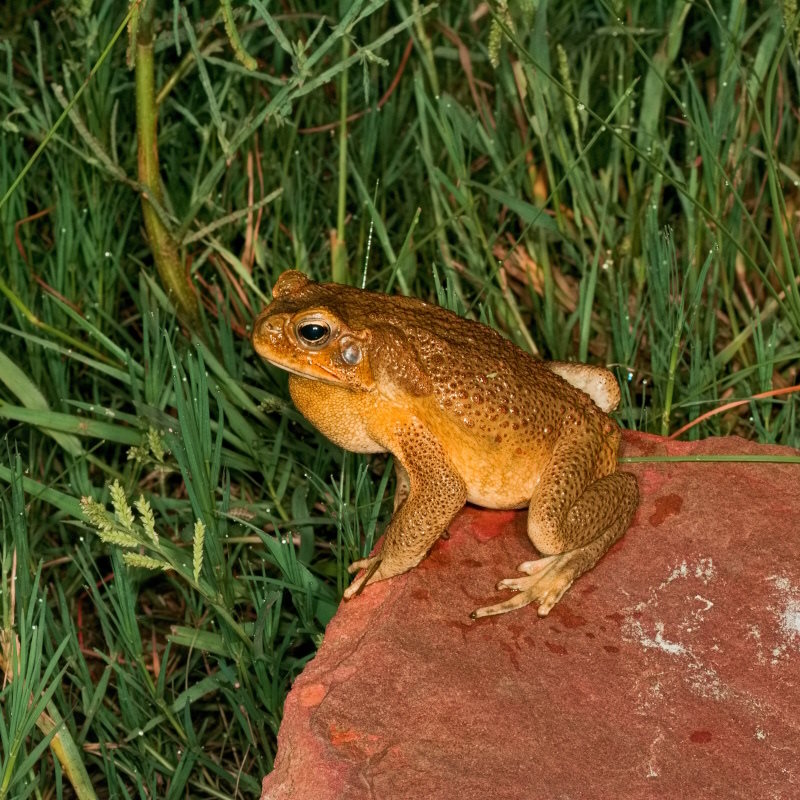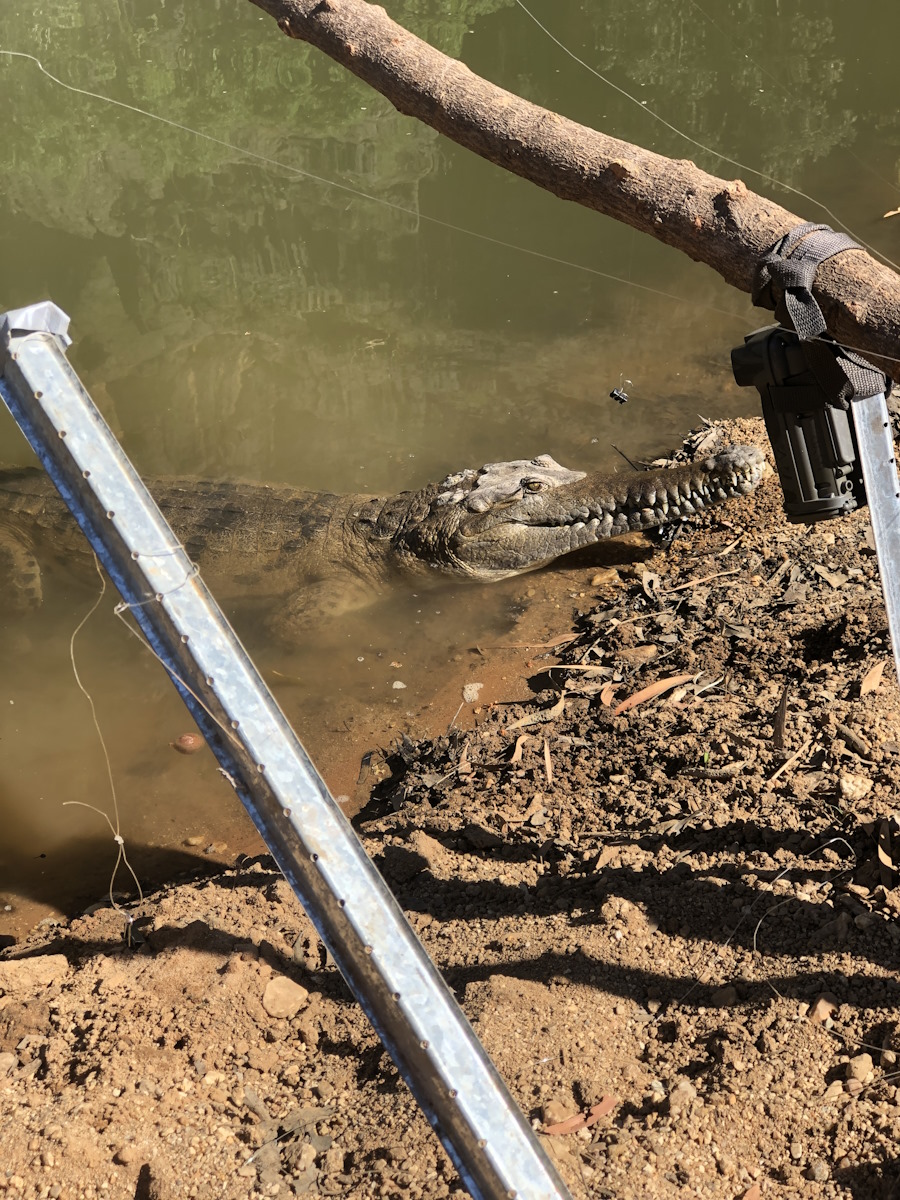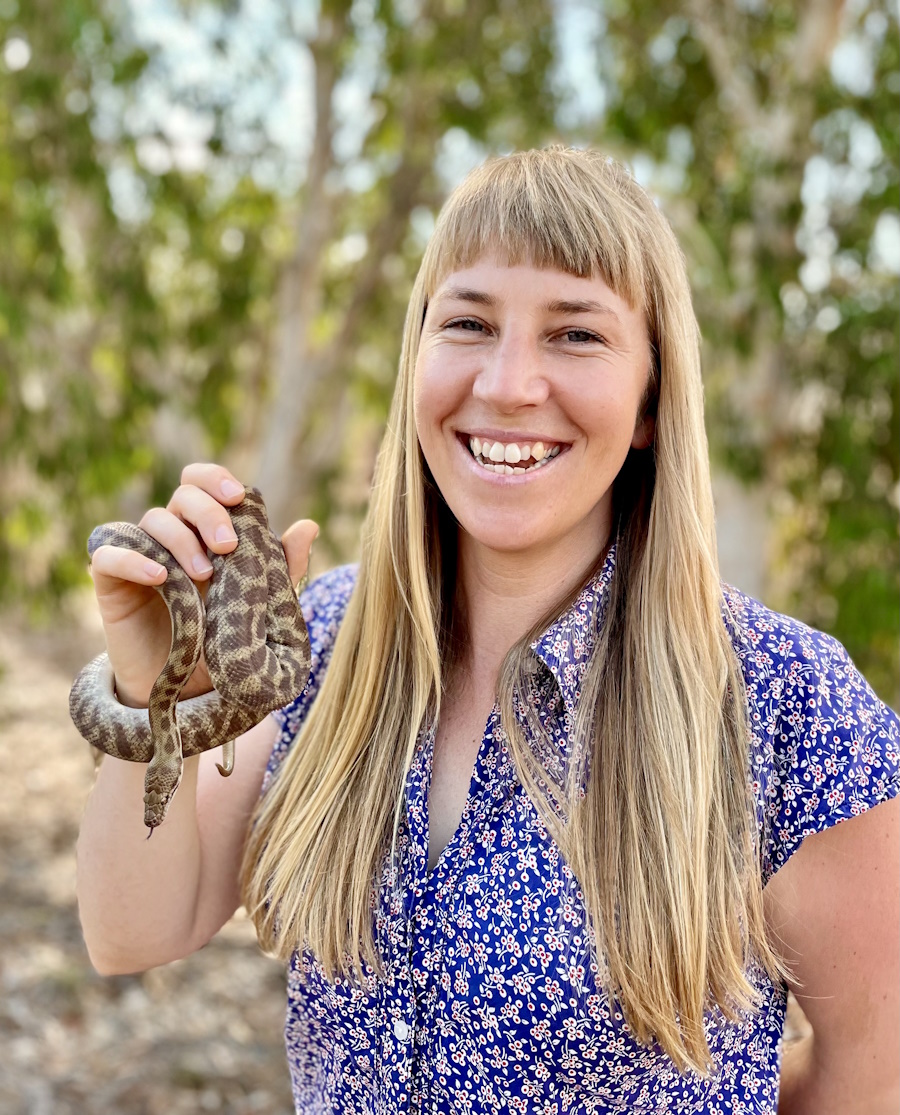Dr. Georgia Ward-Fear tells us about the research published in her new Proceedings B paper, a study that used conditioned taste aversion (CTA) in northern Australia to train free-ranging crocodiles to avoid toxic cane toads.

Invasive cane toads have caused a serious decline in some populations of freshwater crocodiles (Crocodylus johnstoni) as they are fatally poisoned when attempting to eat the toads. A new study in Proceedings B examined the use of conditioned taste aversion techniques in training crocodiles to avoid the toxic prey, thus reducing mortality rates. Lead author, Georgia Ward-Fear, from Macquarie University, tells us more about the study and its findings.
Summary of the paper
Many threats imperilling global ecosystems are impossible to control. In some cases, the only way to reduce the impacts may be to build the resilience of native species. Instead of eradicating problematic invasive species, can we teach native wildlife to avoid them?
When the invasive species is toxic we can employ a method known as “conditioned taste aversion” (CTA) – a learned association between the taste of a particular food and illness. This involves exposing native predators to nausea-inducing (but not fatal) encounters with the toxic prey, hoping they generalise the experience and avoid eating that species in the future. Cane toads (Rhinella marina) were a failed biocontrol in Australia but have since spread and caused some populations of freshwater crocodiles (Crocodylus johnstoni) to plummet by >70% when they attempt to eat the highly toxic toads. Declines in apex predators destabilise ecosystems, thus their conservation is a high priority. We wanted to trial CTA with wild crocodile populations that were about to be invaded by cane toads. We developed a taste aversion baiting strategy that could work for landscape-scale management. Crocodile abundance was quantified with surveys. We then deployed 2,395 baits (toad carcasses with toxin removed and containing a nausea-inducing chemical) across four gorge systems in northwestern Australia, monitoring bait uptake each day directly and with remote cameras.
Free-ranging crocodiles in all populations rapidly learned to avoid toad baits but continued to consume control (chicken) baits, demonstrating the development of taste aversion. Treatment with taste aversion baits halted mass mortality events at a site that had already been invaded by cane toads and prevented mass mortality events at every other treated site once the cane toads arrived. High crocodile mortality continued unabated at our control site. In areas with high connectivity to other waterbodies, repeated baiting over successive years had continuing positive impacts on crocodile survival. We show that crocodiles can generalise their baiting experience to live adult toads at the invasion front, and excitingly, we succeeded in buffering the often-catastrophic impact of invasive cane toads on apex predators.
Our work provides a great case study of academics, Traditional owners and government authorities collaborating to translate theory into on-ground conservation outcomes.


About the authors
Georgia Ward-Fear is a conservation scientist and postdoctoral fellow at Macquarie University. She gained her PhD at the University of Sydney in the ecology and conservation of tropical reptiles and studies animal behaviour, ecology and invasion science in collaboration with industry stakeholders and indigenous Traditional owners.
The Bunuba Rangers are a team of Bunuba Traditional owners managing their ancestorial homelands - Bunuba Country - in the central Kimberley region of northern Australia. The Bunuba people have been pivotal to the development of the taste aversion strategy with apex reptilian predators.
Miles Bruny, Clare Forward and Ian Cooksey are based at Western Australia’s Department of Biodiversity, Conservation and Attractions. Miles is a field officer within the cane toad program, Clare is the state’s cane toad program coordinator and Ian is the senior ranger at Danngu (Geike gorge) national park.
Rick Shine is an evolutionary ecologist and Professor at Macquarie University. He has conducted extensive research on reptiles and amphibians, proposed novel mechanisms for evolutionary change and is involved in developing numerous reptile conservation programs.
What was your experience like publishing in Proceedings B?
Obviously Proceedings B has a great reputation as a journal which publishes high quality, interesting science of broad content, which is also reflected in its impact factor. We were very happy when our paper was sent out for review, excited when it came back with manageable revisions, and ecstatic when it was accepted for publication. The high calibre reviewers provided constructive suggestions which improved the manuscript immensely. Likewise, communication with the handling editor was efficient, constructive and refreshingly personable. We appreciated the option to publish Open Access in this high-quality journal, because this conservation research should be easily accessible to environmental managers and Traditional Owners alike.
Proceedings B is looking to publish more high-quality research articles and reviews in behaviour. If you have an idea for a review, we strongly encourage you to submit a proposal by completing our proposal template and sending it to the journal. More information about the journal and the submission process can be found on our website.
Image credits: All images courtesy of Georgia Ward-Fear.
